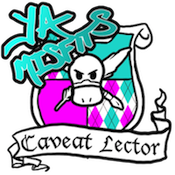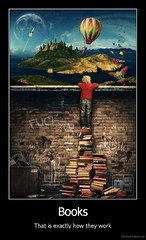This is also not a post about whether young adults should be allowed to read books with sex, swearing, violence, and illegal activity in them. (Though, young adults will read whatever they want, whether or not their parents/librarians/teachers say it’s okay. Trust me.)
I’ve seen a lot of requests for “clean YA” floating around lately. From what I’ve gathered, “Clean” refers an absence of certain types of content, most often sexual in nature, though it could also refer to language, violence, illegal activity, and/or thematic content. But, since “clean” most often refers to an absence of sexual content, as a YA/NA writer, I wanted to know what sorts of sexual content could be included in a book classified as “clean.”
From what I gather, “Clean YA” avoids one or all of the following:
- Kissing
- Open-mouthed kissing
- “Beyond kissing” (unclear – might be neck or shoulder kissing?)
- Frontal heavy petting above the belt (on girls)
- Heavy petting below the belt
- Masturbation
- Oral sex
- Vaginal penetration
- Vaginal intercourse
- Anal intercourse
- Fetishized/kinky sex
The obvious issue here is that when “clean” is used to refer to the absence of something, it communicates that that something is, by definition, the opposite – dirty. Filthy. Grimy. Scuzzy. Smutty. Mucky, foul, icky, yucky, gross.
The more serious problem is this: When we ask for a solid definition of “clean,” it’s almost impossible to get one. That’s because everyone’s definition of “clean” seems to be different – the entire definition of “clean” is subjective. My “clean” might be your “dirty.” Your “clean” might be someone else’s “smudgy.” And that person’s “clean” might be another person’s “seriously, you’d let your kid read that?”
But the biggest problem is, perhaps, the simplest. Almost universally, “clean” is something good, something desirable, something we strive for. “Dirty” is something bad, something shameful, something we’re supposed to work hard to stay away from. It is contemptible, hateful, vile, a cause for disassociation with someone.
Whether we like it or not, kissing, groping, and sex are part of the teen experience. If your teen isn’t involved in any of those things (are you sure?) then some of her friends, or her classmates, or her schoolmates, or the girls who play on her softball team or sit beside her at church, are.
If we really want to communicate to those girls, or to our daughters, who are friends with those girls, that kissing, touching, and sex do NOT fall under the definition of “clean,” we must accept that our message is this: Teens who engage in these activities are dealing in some dirty business. Tongue kissing is a little grubby, honey. Someone touches your genitals? Dirty. You had sex with your boyfriend? Filthy.
Now, some of you might say, “It’s just a word, something that makes it easy to identify a type of book.”
Okay. Well, if that’s true, I’d like to enter in my own definition of “Clean YA.” Clean YA is writing that doesn’t shame, doesn’t discriminate, doesn’t judge. It’s YA that encourages healthy relationships and glorifies self-care and respect for everyone.
My version of clean YA recognizes that sexuality is something that develops naturally in teens, and assures readers that it’s healthy and normal to have those feelings and urges. It’s YA that communicates that the reader is a worthy individual, regardless of what she decides to do with her vagina.
That’s YA that I want my daughters – and my sons – to read (even though, like I said, they’ll read whatever they want, I’m sure.)
Some of the books that appear on every single “Clean YA” list out there wouldn’t even come close to touching mine.
So, all I ask is this. Let’s think about what we want out of our “clean” books and why we want it. Let’s be brave enough to be specific. If your “clean” is “doesn’t feature or glorify pre-marital sex, because I don’t want my kid to think pre-marital sex is okay,” then that’s your prerogative. Say it. Own it.
I promise you, any conversation that comes out of that will be a heck of a lot more productive and clear than “Clean books only, honey.”

















